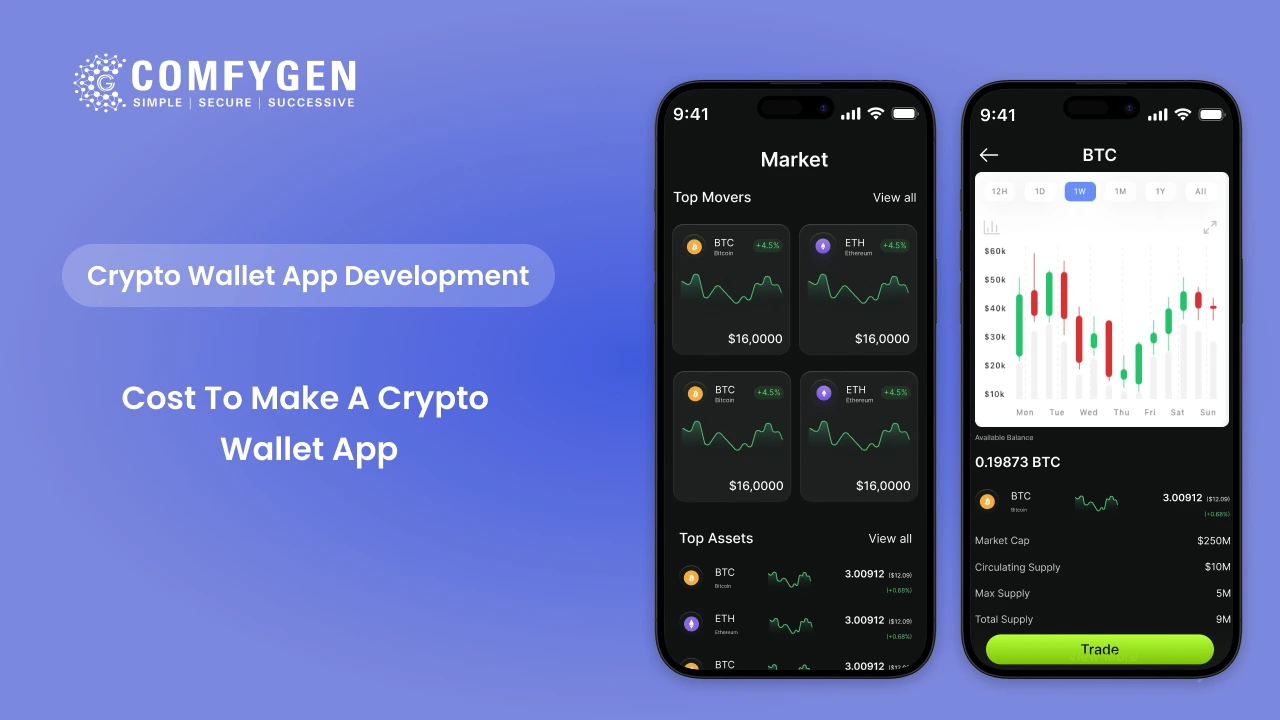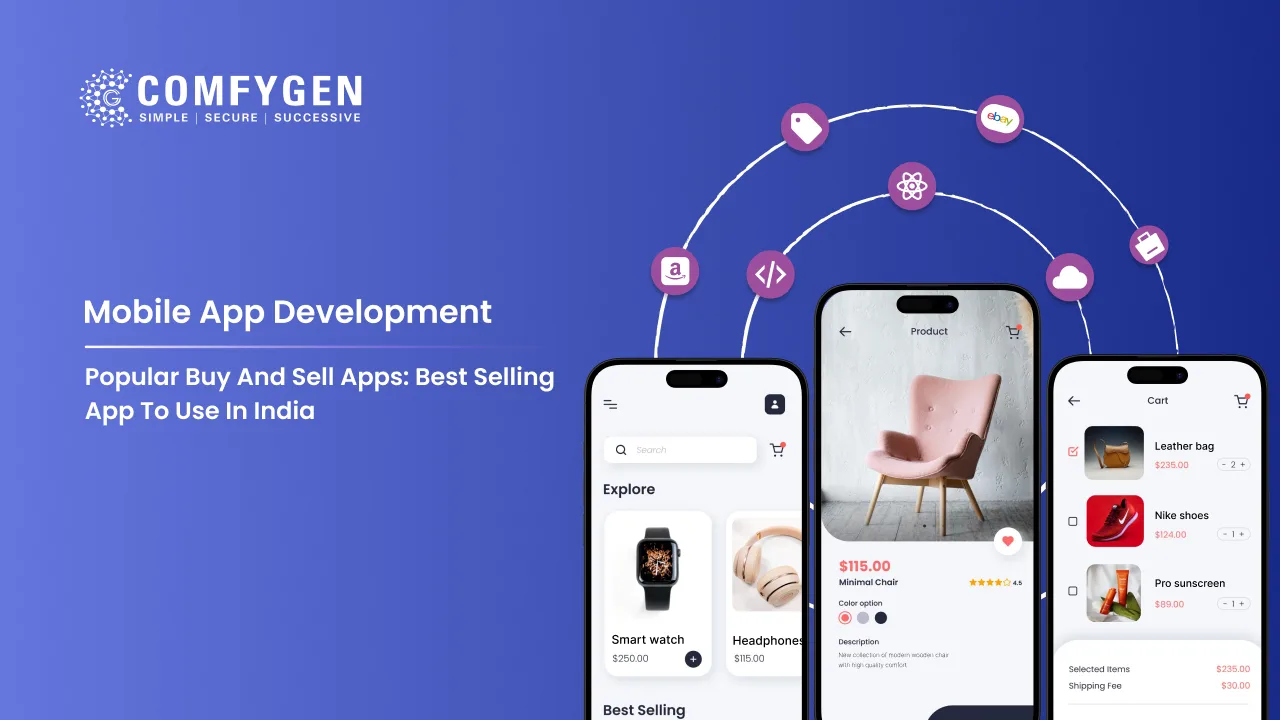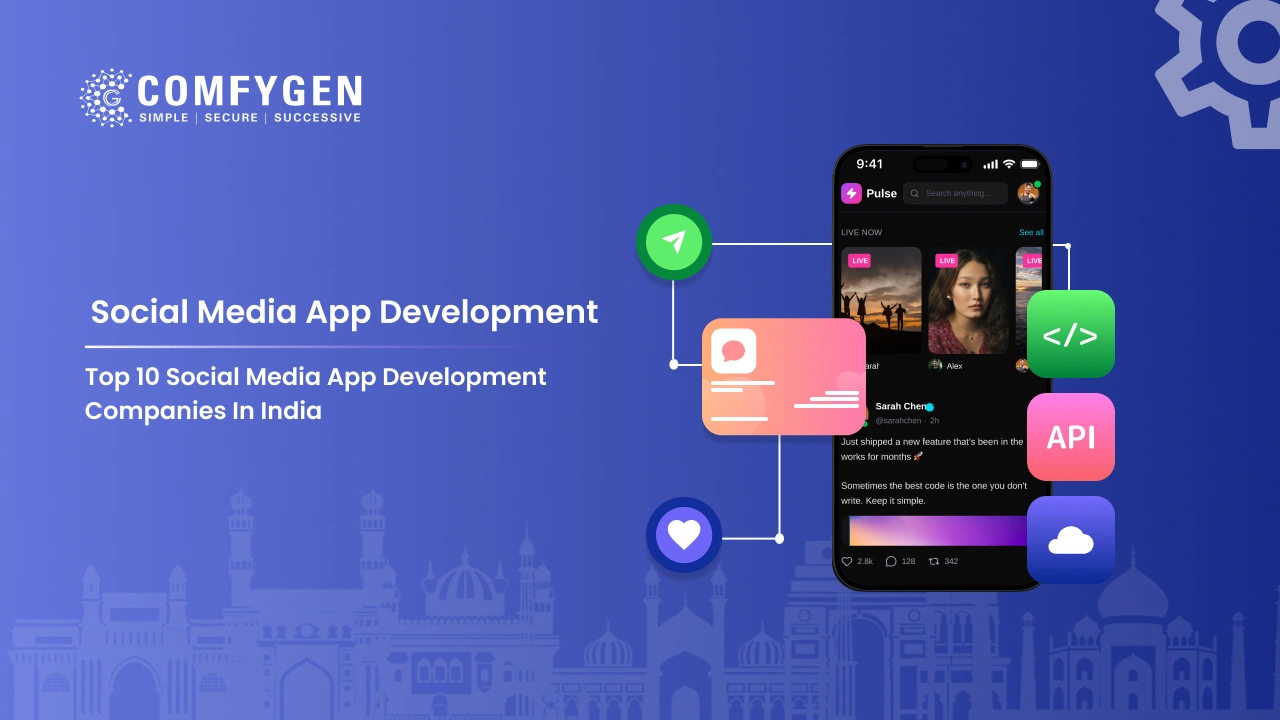The demand for crypto wallet app development is growing rapidly because more businesses are adopting blockchain technology and digital assets. A crypto wallet app allows users to securely store, send, receive, and manage cryptocurrencies.
Today, companies are investing in crypto wallet development to offer secure digital payment experiences, enable global transactions, support decentralized applications (dApps), and expand into the growing Web3 ecosystem. With rising user expectations for privacy, speed, and security, enterprises need robust, scalable, and feature-rich crypto wallet development solutions.
This Blog breaks down everything you need to know about crypto wallet development costs and what impacts the overall budget.
What is a Cryptocurrency?
Blockchain-based cryptocurrencies are decentralised digital currencies. The value of a coin is controlled and decentralized. These responsibilities are evenly dispersed among cryptocurrency users via the internet. Cryptocurrencies are based on blockchain technology, which enables decentralized processing and authentication of transactions.
What Is a Crypto Wallet?
A crypto wallet is a secure digital application that allows users to store, manage, send, and receive cryptocurrencies. Unlike traditional wallets, crypto wallets don’t hold coins physically; they store private keys, which give users complete access to their digital assets on the blockchain.
Types of Crypto Wallets
1. Custodial Wallets
- Managed by a company or service provider
- Ideal for beginners and enterprise platforms
- Faster onboarding and recovery options
2. Non-Custodial Wallets
- Users control their private keys
- Higher security and total ownership
- Preferred by advanced crypto users and DeFi participants
3. Hot Wallets
- Connected to the internet
- Used for daily transactions, exchanges, and mobile apps
- Includes web, mobile, and desktop wallets
4. Cold Wallets
- Offline storage for maximum security
- Used for long-term asset protection
- Includes hardware and paper wallets
Cost of Crypto Wallet Development based on wallet Type
Here’s where things start to get real. Different wallets require different levels of engineering, security, and blockchain integration, which means the cost isn’t the same for everyone. Let’s break it down by wallet type so you can see where your project fits.
Basic Crypto Wallet
A straightforward wallet that lets users create an account, send/receive crypto, manage balances, and view transactions. No advanced add-ons, no multi-chain logic, and no Web3 features—just the essentials.
Estimated Cost: ₹4,00,000 – ₹8,00,000 (USD $5,000 – $10,000)
Advanced Wallet With Multi-Chain Support
Once you introduce multi-chain capabilities, the budget shifts upward. Integrating multiple blockchains requires more APIs, deeper backend work, smarter UI flows, and extensive QA. Users expect smooth network switching, real-time balances, and reliable multi-chain transactions.
Estimated Cost: ₹10,00,000 – ₹22,00,000 (USD $12,000 – $28,000)
Wallet With a Built-In DApp Browser
Adding a DApp browser (like MetaMask or Trust Wallet) turns your wallet into a full Web3 gateway. The team must integrate Web3 libraries, smart contract interaction layers, in-app browser optimization, and strong protection against malicious DApps.
Estimated Cost: ₹20,00,000 – ₹35,00,000 (USD $25,000 – $45,000)
Wallet Similar to MetaMask or Trust Wallet
MetaMask or Trust Wallet are the top-tier, feature-rich category. These wallets support high traffic, multiple networks, Web3 interactions, and advanced security. They usually include:
- Non-custodial key management
- DApp browser
- Swaps & token bridges
- NFT display & management
- Multi-network support
- Advanced security modules
- Highly polished UI/UX
Estimated Cost: ₹35,00,000 – ₹75,00,000+ (USD $45,000 – $90,000+)
|
Wallet Type |
Estimated Cost (INR) |
Estimated Cost (USD) |
|
Basic Crypto Wallet |
₹4,00,000 – ₹8,00,000 |
$5,000 – $10,000 |
|
Advanced Multi-Chain Wallet |
₹10,00,000 – ₹22,00,000 |
$12,000 – $28,000 |
|
Wallet with DApp Browser |
₹20,00,000 – ₹35,00,000 |
$25,000 – $45,000 |
|
MetaMask/Trust Wallet–Level App |
₹35,00,000 – ₹75,00,000+ |
$45,000 – $90,000+ |
Cost Breakdown by Wallet Features
What this really means is that every feature you add to a crypto wallet pulls time, engineering effort, and security work into the project. Some features barely touch the budget. Others can double it. Here’s a clear cryptocurrency wallet development cost breakdown so you can see where the money actually goes.
User Onboarding
Simple onboarding, like sign-up, login, recovery options, and key generation, is quick, but adding secure key backup or social login increases cost due to encryption and extra flows.
Estimated Cost: ₹50,000 – ₹2,00,000 ($600 – $2,500)
Send & Receive Crypto
The key function of any wallet is Basic sending/receiving is simple, but adding real-time balance updates, fee estimation, and reliable network confirmations increases complexity.
Estimated Cost: ₹1,00,000 – ₹3,00,000 ($1,200 – $3,600)
QR Scanner
Requires camera permissions, scanning libraries, and multi-device testing. A small feature, but still requires engineering hours.
Estimated Cost: ₹30,000 – ₹80,000 ($400 – $1,000)
Multi-Currency Support
One token development is cheap; dozens of tokens require multiple chain integrations, APIs, and heavy QA.
Estimated Cost: ₹2,00,000 – ₹10,00,000 ($2,500 – $12,000)
Buy/Sell Crypto Integration
Needs integration with payment gateways like MoonPay or Transak. Compliance checks, UI logic, and handling failed transactions increase cost.
Estimated Cost: ₹1,50,000 – ₹4,00,000 ($1,800 – $5,000)
Swaps (Token Exchange Inside the App)
Involves DEX integration, smart contract calls, slippage, fee calculations, and error handling. A major cost-heavy feature.
Estimated Cost: ₹3,00,000 – ₹12,00,000 ($3,500 – $15,000)
NFT Support
Requires metadata fetching, gallery UI, and ERC-721/1155 handling. Visually and technically complex.
Estimated Cost: ₹2,00,000 – ₹8,00,000 ($2,500 – $10,000)
2FA, Biometrics & Encryption
High-trust features need secure implementation and device-level encryption. Often underestimated but crucial.
Estimated Cost: ₹80,000 – ₹3,00,000 ($1,000 – $3,600)
Admin Panel
Includes dashboards, user management, analytics, monitoring, and support tools. Becomes a full mini-project in itself.
Estimated Cost: ₹2,50,000 – ₹10,00,000 ($3,000 – $12,000)
KYC/AML Integration
Uses providers like Onfido or Sumsub. Managing verification states and failed attempts adds complexity.
Estimated Cost: ₹1,00,000 – ₹4,00,000 ($1,200 – $5,000)
Cost Breakdown by Development Approach Of Crypto Wallet
This is where budget decisions really play a role. The same wallet can cost completely different amounts depending on who builds it. Each crypto wallet app development approach comes with its own rhythm, price range, and trade-offs. Let’s break it down so you can see what fits your budget and timeline.
In-house Team:
Gives you full control over development but comes with the highest cost of crypto wallet app development due to salaries, tools, and long-term commitments. Best for companies planning continuous updates or multiple blockchain products.
Hiring an Agency:
Agencies provide a complete, experienced blockchain app development team and deliver faster with structured processes. Costs more than freelancers but offers lower risk and more reliable outcomes.
Hiring Freelancers:
The cheapest option upfront, but coordination is difficult and can lead to delays or inconsistent results. Suitable for simple wallets or very tight budgets.
Hybrid Model:
Combines in-house resources with freelancers or agencies for balanced cost and flexibility. Ideal when you need expertise but don’t want a full team on payroll.
Wallet Development Cost Breakdown by Region
The region you choose for development plays a huge role in your final budget. Developer rates vary wildly across the world, and the same crypto wallet can cost two or three times more depending on where the team is based. Here’s a simple breakdown so you can see how geography reshapes your cost.
India
India offers some of the most competitive crypto wallet development rates without compromising on skill. With companies like Comfygen leading blockchain innovation, you get access to experienced blockchain teams, strong mobile developers, and full-service agencies capable of end-to-end delivery.
Estimated Cost Range: ₹4,00,000 – ₹35,00,000+ ($5,000 – $45,000+)
Eastern Europe
Regions such as Ukraine, Poland, Romania, and Estonia offer a mid-range price for creating a crypto wallet with strong engineering talent and reliable communication. Though slightly costlier than India, they deliver consistent quality.
Estimated Cost Range: ₹10,00,000 – ₹55,00,000+ ($12,000 – $70,000+)
USA / UK
This is the premium development zone. Teams in the USA and UK are known for high-level product thinking, clean architecture, and deep blockchain specialization. However, hourly rates make even basic wallet projects expensive compared to regions where companies like Comfygen operate.
Estimated Cost Range: ₹35,00,000 – ₹1,50,00,000+ ($45,000 – $180,000+)
Middle East
The UAE and Saudi Arabia offer development rates close to Western pricing. Blockchain and fintech talent pools are expanding, but demand keeps costs on the higher side. Many companies partner with global firms like Comfygen to optimize budgets while maintaining quality.
Estimated Cost Range: ₹25,00,000 – ₹1,00,00,000+ ($30,000 – $130,000+)
Cost Breakdown by Tech Stack
The tech stack you choose quietly shapes a big part of your budget. It determines how quickly the team can build, how smoothly the app runs, and how complex future updates will be. Let’s break down how each technical choice affects the overall cost so you can plan with clarity.
Native Development vs Cross-Platform
Native apps (Swift for iOS, Kotlin for Android) offer the best performance but require two separate codebases—meaning double the development, testing, and maintenance work.
Cross-platform apps (Flutter or React Native) reuse most of the code across both platforms, reducing time, cost, and long-term updates.
Estimated Cost Impact:
- Native: ₹20,00,000 – ₹60,00,000+ ($25,000 – $75,000+)
- Cross-platform: ₹12,00,000 – ₹35,00,000+ ($15,000 – $45,000+)
Backend Technologies
Your backend manages transaction history, notifications, analytics, APIs, and more. A simple backend is affordable, but a scalable backend (Node.js, Go, Python) increases cost due to architecture, database setup, and optimization.
Estimated Cost Impact:
- Simple backend: ₹3,00,000 – ₹8,00,000 ($4,000 – $10,000)
- Advanced backend: ₹8,00,000 – ₹25,00,000 ($10,000 – $30,000)
Blockchain Network Choices
Every blockchain you add multiplies development hours. Supporting just Bitcoin or Ethereum is cheaper; adding BNB Chain, Polygon, Solana, Avalanche, etc. significantly increases integration and QA work.
Estimated Cost Impact:
- Single-chain wallet: ₹4,00,000 – ₹10,00,000 ($5,000 – $12,000)
- Multi-chain wallet: ₹10,00,000 – ₹40,00,000+ ($12,000 – $50,000+)
Third-Party APIs & Integrations
Payment gateways (MoonPay, Transak), KYC solutions, swaps, analytics tools, and price trackers improve the wallet experience—but each integration has development and API costs.
Estimated Cost Impact:
- Basic integrations: ₹50,000 – ₹2,00,000 ($600 – $2,500)
- Payments, swaps, KYC, analytics: ₹2,00,000 – ₹10,00,000+ ($2,500 – $12,000+)
Additional Cost In Crypto Wallet App Development
Here’s the part most founders overlook. The development cost is only one side of the story. A crypto wallet needs ongoing care, security, infrastructure, and compliance support. These aren’t optional; they’re the things that keep your wallet stable, safe, and ready for growth. Let’s walk through the hidden costs that quietly shape your long-term budget.
UI/UX Design
Clean user experience matters more in crypto than most people realize.
If the interface feels confusing or clunky, users leave immediately.
A solid UI/UX process includes:
- Wireframes
- Design systems
- Prototyping
- Usability testing
- Multiple revision cycles
Estimated Cost: $5,000 – $20,000, depending on complexity and number of screens.
Security Audits
Security is the part you cannot negotiate.
Every feature that interacts with:
- Private keys
- Smart contracts
- Transaction signing
- Authentication flows
Estimated Cost: $10,000 – $50,000+, depending on the audit depth and number of chains supported.
Hosting & Servers
Your backend infrastructure stores logs, manages APIs, sends notifications, and handles analytics.
As your user base grows, your compute and bandwidth needs grow too.
Estimated Monthly Cost:
- Startups: $100 – $500/month
- Scaling stage: $1,000 – $5,000/month
- Enterprise load: $10,000+/month
Blockchain Node Management
If your crypto wallet interacts with multiple blockchains, node management becomes a recurring cost.
- Run your own full nodes (expensive but highly reliable)
- Use 3rd-party providers like Infura, Alchemy, QuickNode (easy but billed per usage)
Estimated Cost:
- Third-party node services: $200 – $3,000/month
- Self-hosted nodes: $5,000 – $25,000+ setup, plus maintenance.
Compliance (KYC/AML, Licensing)
Once you add fiat on-ramps, identity verification, or financial workflows, compliance becomes mandatory.
Includes:
- KYC/AML checks
- Transaction monitoring
- Legal reviews
- Regulatory updates
- License adherence
Estimated Cost:
- KYC/AML providers: $1 – $3 per verification
- Compliance setup + legal: $5,000 – $30,000+ annually
Ongoing Updates
Crypto evolves constantly. Networks upgrade, APIs change, security threats emerge, and new features must be added.
Updates are not optional—they are continuous maintenance.
Estimated Monthly Maintenance cost: $2,000 – $10,000/month, depending on complexity.
Customer Support
Even with perfect UI, users will still face issues:
- Failed transactions
- Network congestion
- Lost seed phrases
- Incorrect gas fees
- Wallet restoration problems
Estimated Cost:
- Small team (2–3 agents): $1,500 – $5,000/month
- Large user base: $10,000+/month
Conclusion
When you look at everything side by side, the cost of blockchain wallet development really comes down to the choices you make—features, platforms, security, and how far you want to push into the Web3 ecosystem. A basic wallet gets you started, but advanced multi-chain setups, DeFi tools, swaps, and NFT support take real engineering power and a bigger budget.
What this really means is that you need a partner who understands both the tech and the economics behind it. That’s where Comfygen makes a difference. Instead of giving you vague estimates or cookie-cutter templates, we break down the costs clearly, help you avoid unnecessary spending, and design a wallet that can actually handle real-world users and transaction load.
If you want a wallet that’s secure, scalable, and built to grow with the crypto market—not just something that looks good on day one—Comfygen helps you get there with confidence. A smart plan now saves you from expensive surprises later, and sets you up with a product your users can trust.

Mr. Saddam Husen, (CTO)
Mr. Saddam Husen, CTO at Comfygen, is a renowned Blockchain expert and IT consultant with extensive experience in blockchain development, crypto wallets, DeFi, ICOs, and smart contracts. Passionate about digital transformation, he helps businesses harness blockchain technology’s potential, driving innovation and enhancing IT infrastructure for global success.









